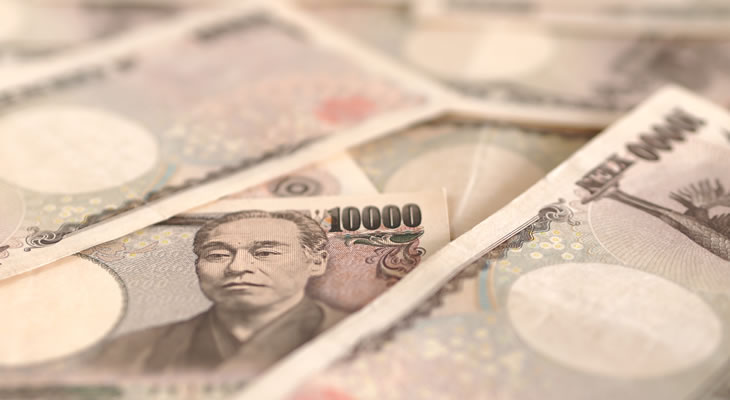US Dollar to Japanese Yen Exchange Rate Climbs to Best Levels Since January
Amid persistent strength in US Dollar (USD) trade, the US Dollar to Japanese Yen (USD/JPY) exchange rate has put in its best week of gains in almost a month and is on track to end this week near its best levels since January 2018.
Following a more modest climb from 109.11 to 109.40 last week, USD/JPY has jumped since markets opened on Monday. On Thursday, USD/JPY touched a high of 110.79 – its best level in over three months.
As well as persistent US Dollar strength, USD/JPY has benefitted from concerning Japanese ecostats dragging on the Japanese Yen (JPY) in recent sessions.
In fact, USD/JPY may even continue to climb in the short to mid-term, as markets perceive little reason to buy the Japanese Yen amid weak demand for ‘safe haven’ currencies as well as low Bank of Japan (BoJ) interest rate hike bets.
US Dollar (USD) Exchange Rates Appealing Amidst Weak Rivals and Solid US Data
Much of the US Dollar’s recent gains have been due to broad Japanese Yen weakness, but it has also benefitted from strong US data over the past week.
The data has continued to indicate that the US economy is strong, and that the Federal Reserve might even hike US interest rates four times in 2018 as opposed to just three times.
Wednesday saw the publication of strong US industrial production data, and US retail sales were solid earlier in the week too.
Essentially, with US data continuing to come in strongly and Federal Reserve interest rate hike bets high, the US Dollar is benefitting from market expectations that the US economy will improve more than other major economies over the coming year.
As a result of this general market optimism over the US economy, comments from Federal Reserve official James Bullard arguing that the Fed’s policy rate was getting closer to a neutral rate had little downside impact on USD trade.
Japanese Yen (JPY) Exchange Rates Unappealing as Japanese Growth Slumps
An unexpectedly broad contraction in Japan’s Gross Domestic Product (GDP) projections made investors a lot more concerned about Japan’s economic outlook on Wednesday. This has weighed considerably on Japanese Yen trade.
Japan’s quarter-on-quarter growth projection was forecast to have worsened from 0.4% to 0%. However, the previous figure was revised lower to just 0.1%, while the quarterly figure came in at a concerning -0.2%.
The annualised figure was even more disappointing, with the previous figure being revised from 1.6% to 0.6% and the Q1 print coming in at -0.6% rather than the forecast -0.2%.
News that Japanese industrial production had beaten expectations in March was not enough to make the Japanese Yen more appealing.
Persisting political uncertainty in Japan has also weighed on Yen appeal, as Japanese Prime Minister Shinzo Abe has shed support due to cronyism scandals.
US Dollar to Japanese Yen Forecast: USD/JPY Advance Could Continue if Japanese Inflation Disappoints
With Japanese growth coming in well short of forecasts, there could be even further losses ahead for the Japanese Yen depending on the results of Friday’s Japanese inflation rate report.
Subdued Japanese inflation has left the Bank of Japan (BoJ) stood pat on Japanese monetary policy and weak data from the nation has kept the bank cautious.
Japan’s inflation rate is forecast to have slowed from 1.1% to 0.7% year-on-year in April, with the core inflation rate forecast to slow slightly from 0.9% to 0.8%.
If inflation comes in even weaker than expected, USD/JPY is likely to extend its rally and the exchange rate outlook will remain high. The pair is still 2 yen below its best 2018 levels.
On the other hand, a surprisingly strong Japanese inflation report could cause the pair to shed some of its recent gains.
Still, it would take a particularly strong Yen to cause USD/JPY to lose its weekly gains, so the pair is still on track to end the week higher.
The US Dollar could be influenced by speeches from Federal Reserve officials in the coming days, but with the US economic outlook generally strong they may not have a significant impact on the US Dollar to Japanese Yen (USD/JPY) exchange rate.


Comments are closed.